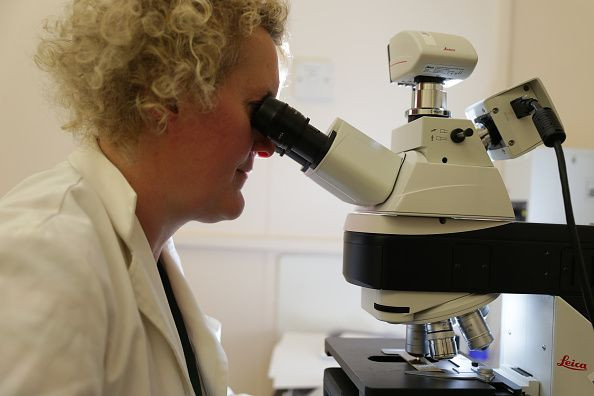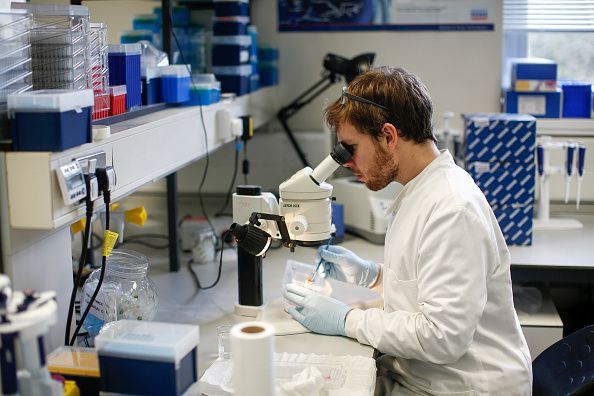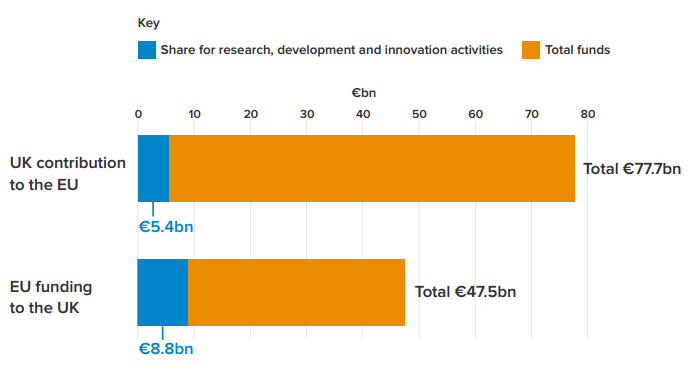Brexit: For British Scientists, Vote To Leave EU Triggers Fears Of Funding, Talent Loss

Even in the months leading up to the fateful Thursday referendum, it was clear that an exit from the European Union was something scientists in the U.K. were overwhelmingly against. Now that the writing on the wall suggests that the U.K.’s days in the 28-nation bloc are probably numbered, scientists in the country are asking a crucial question — how will Brexit hurt their future research and collaboration efforts?
The scientists’ areas of concern are twofold — lack of access to EU research funds and brain drain.
“It’s a disaster. We are so heavily embedded in Europe in terms of the funding, it’s going to be very difficult to sort out,” Nobel Prize winning British physicist Peter Higgs — who predicted the existence of the Higgs boson in the 1960s — said Friday. “Not just the funding, but the way in which membership of the European Union results in the flow of people between different countries. ... This result puts their status in question.”

The United Kingdom has long been a science and research powerhouse in Europe. According to the Economist, the country, which accounts for less than 1 percent of the world’s population, has 4 percent of its researchers, and produces 16 percent of the world’s most “highly cited” research papers. This is, in no small part, due to the cash flowing into the country from the EU — a flow that Brexit would choke.
Between 2007 and 2013, the U.K. contributed an estimated 5.4 billion euros to fund research and development in the EU. In return, the U.K. received 8.8 billion euros in direct EU funding for research, development and innovation activities.

“In the past, U.K. science has been well supported by EU funding. This has been an essential supplement to U.K. research funds,” Venki Ramakrishnan, president of the Royal Society, said in a statement. “In the upcoming negotiations we must make sure that research, which is the bedrock of a sustainable economy, is not short changed, and the Government ensures that the overall funding level of science is maintained.”
Although the “leave” campaign has promised to make good any shortfall in science funding that results from a departure from the EU, it is not yet clear how they intend to do so, given that previous calls by the House of Commons’ Science and Technology Committee to increase research funding to up to 3 percent of the GDP from its current 1.7 percent are yet to be heeded.
Now that the British public has voted to leave the EU, the U.K. may also lose access to science programs implemented under the bloc's Horizon 2020 framework, which facilitates collaboration between and fund disbursals for research teams in different countries. Even if the U.K. elects to pay to participate in the Horizon 2020 program, it would still lack the clout it has traditionally enjoyed in shaping the bloc’s research agenda.
“I am a big fan of these programs,” Nadia Rosenthal, scientific director of the Jackson Laboratory in Bar Harbor, Maine, who has collaborated with several EU consortia on genetics projects, told Nature. “The coordination of talents they can achieve would be very hard to pull off in the United States — or in the U.K. alone, if it were not connected to Europe.”
Currently, over a third of the research scientists currently working at the University of Cambridge — one of the leading centers of scientific research in the U.K. and the world — are foreigners, and 23 percent are from other EU nations, according to the BBC.
Although it is highly unlikely that these staff would have to leave once the U.K.-EU divorce is finalized, or that the grants awarded to them would be rescinded, fears are that in the future, once migration across the U.K.-EU border has been stemmed, the loss of mobility could make securing funding and jobs in the U.K. more difficult for researchers from other European nations.
“I have been privileged during my career to have worked in a research environment in Europe which has had few borders for either people or ideas. We must strive to make sure that these rights are not taken away — this would be enormously to the detriment of U.K. society,” John Zarnecki, president of the Royal Astronomical Society said in a statement. “We must remember that whatever happens, science has no boundaries.”
© Copyright IBTimes 2025. All rights reserved.






















